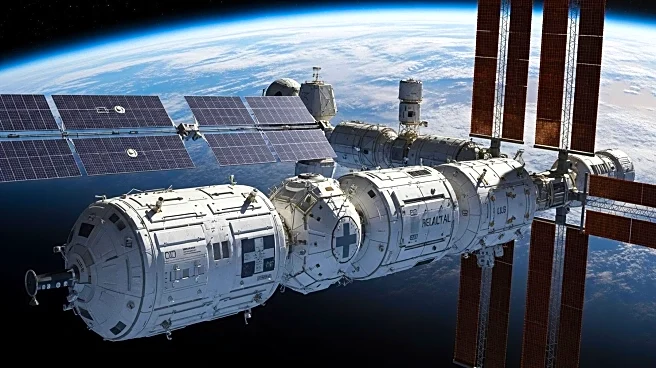What's Happening?
NASA's Expedition 73 crew aboard the International Space Station is conducting research on the effects of microgravity on human health, focusing on eye structure, digestion, and heart health. The crew is using specialized equipment, such as thigh cuffs and ultrasound devices, to study conditions like Spaceflight Associated Neuro-ocular Syndrome (SANS) and gastrointestinal changes. Meanwhile, a planned reboost of the station using SpaceX's Dragon spacecraft was aborted due to a fuel tank swap issue. Ground teams are reviewing plans for a follow-up reboost.
Why It's Important?
Understanding the health impacts of long-term space missions is crucial for future exploration efforts, including missions to the Moon and Mars. The research conducted by the crew provides valuable insights into how microgravity affects the human body, which can inform safety protocols and medical interventions for astronauts. The aborted reboost highlights the complexities and challenges of maintaining the space station's orbit, emphasizing the need for precise coordination between NASA and SpaceX.
What's Next?
NASA and SpaceX are planning a follow-up reboost attempt to ensure the space station maintains its optimal orbit. The ongoing health research will continue to provide data that could lead to improved health measures for astronauts. As space exploration advances, the findings may also have applications for medical treatments on Earth.
Beyond the Headlines
The research on microgravity's effects on human health could lead to breakthroughs in understanding certain medical conditions on Earth, such as fluid retention and vision changes. The collaboration between international space agencies underscores the importance of global partnerships in advancing space exploration and scientific discovery.









